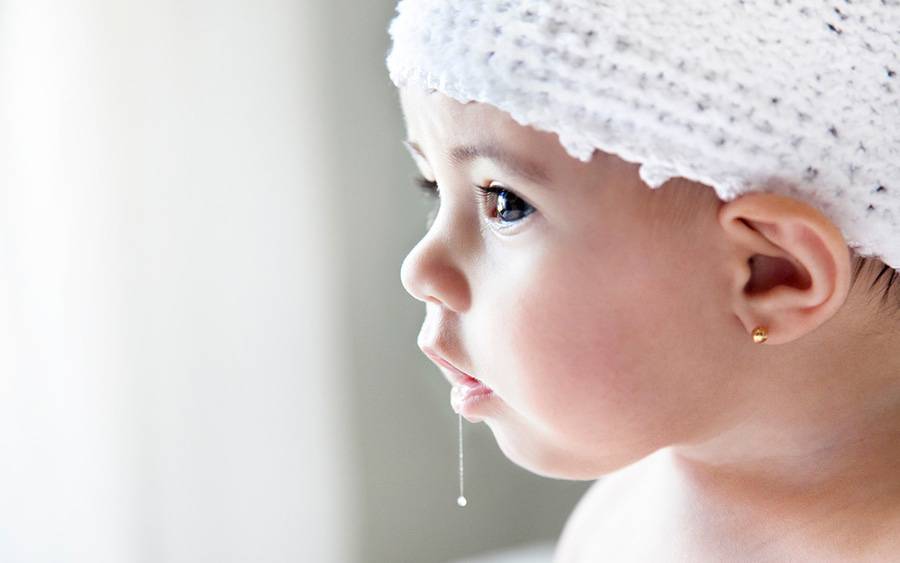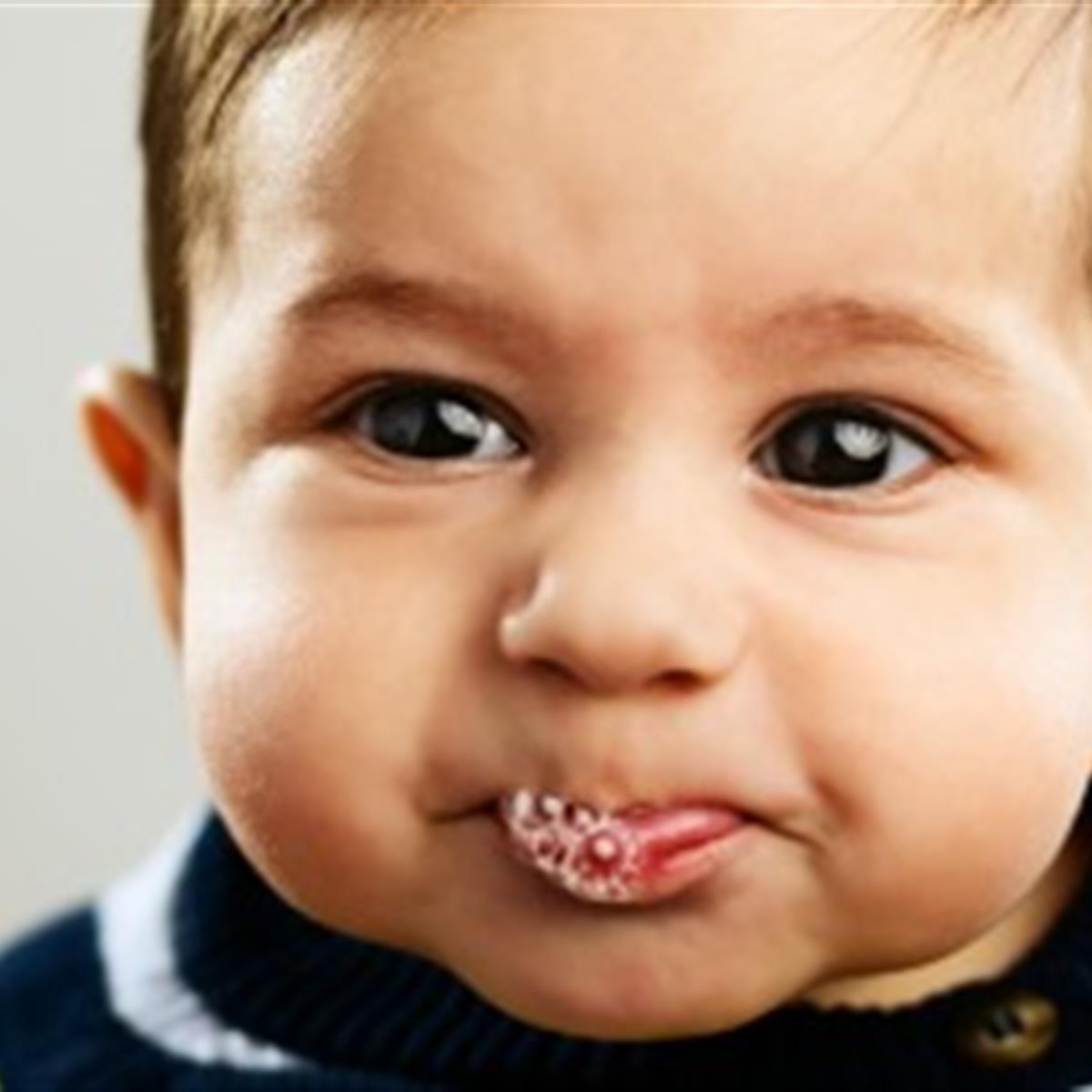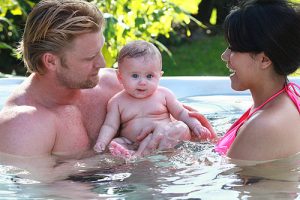Why Does My Baby Drool So Much? Drooling is a normal part of a baby’s development. Babies drool for many reasons, including teething, having an immature swallowing reflex and increased saliva production as they learn to eat solid foods. Teething can cause babies to drool more because the gums are swollen and sensitive.
Additionally, the sucking reflex causes them to swallow more frequently which in turn produces more saliva that comes out as drool. As babies transition from breast milk or formula to eating solids, their bodies produce extra saliva leading to an increase in drooling until they master the art of chewing and swallowing food efficiently. Lastly, some babies just have higher levels of natural salivation than others so it is likely that parents will find themselves wiping away excess drool off their little one’s chin on occasion!
Babies often drool more than adults because their salivary glands are not yet fully developed. As babies grow and explore the world around them, they put many things in their mouths to help them learn about texture and taste. This can lead to an excess amount of saliva that simply cannot be contained in their little mouths, resulting in a lot of drooling!
Baby Drooling at 1 Month
At 1 month old, babies may start to drool more as their salivary glands begin to produce more saliva. This is completely normal and nothing to worry about; however, it’s still important for parents to keep an eye on the baby’s mouth hygiene and make sure they are wiping away any excess saliva with a clean cloth.

Credit: www.scripps.org
Is It Normal for a Baby to Drool Excessively?
It’s very common for babies to drool excessively, especially in the first few months after birth. Babies have yet to develop the muscles and coordination necessary to keep their saliva from spilling out of their mouths, so this is perfectly normal. It can be quite messy as a result though!
The good news is that with age, your baby will learn how to manage his or her saliva better. Until then, you should expect lots of drooling and wet clothes due to spit-up. To reduce excessive drooling in infants, make sure they’re properly hydrated by giving them frequent feedings or offering them water throughout the day.
You may also want to try providing teething toys since they help provide relief during painful teething episodes which can lead to increased salivation. If you notice any signs of discomfort such as fussiness or difficulty breathing while your baby is drooling heavily, contact your doctor right away as it could be a sign of an underlying medical condition requiring treatment that should not be ignored.
When Should I Be Concerned About My Baby Drooling?
When it comes to babies, drooling is a common occurrence. It’s normal for a baby to start drooling as soon as they are born and can continue until the age of three or four. However, there may be times when you should be concerned about your baby’s drooling.
If your baby is excessively drooling more than usual, refusing to swallow saliva or having difficulty breathing due to excessive saliva in their mouth then these could be signs that something is wrong and you should contact your doctor immediately. Other signs of concern include if the skin around the chin becomes red from being constantly wet with saliva if your baby has difficulty sleeping because of excess saliva build up in their mouth or if they have pain associated with swallowing large amounts of saliva at once. Drooling can also be a sign of teething so if you think this might be the case make sure that you monitor any other symptoms such as fever or fussiness which could indicate an infection or irritation around their gums caused by teeth pushing through.
Why is My 3 Month Old Drooling So Much?
It is common for a 3-month-old baby to drool more than other age groups. This excessive saliva production is due to the fact that their salivary glands are still developing and thus, they produce more saliva than what an older infant or toddler would do. Additionally, it could also be because your little one has started teething.
Teething can cause increased drooling as well as other symptoms such as fussiness and biting on objects. Furthermore, another possible reason why your 3-month-old may be drooling excessively could be that he/she is learning how to manage their mouth muscles better so that he/she can eventually learn how to suck, chew and swallow food properly in the future. It’s important to remember though that excessive drooling should not last longer than three months from now and you should take your child to see a doctor if it continues beyond this period of time.
Why is My 2 Month Old So Much Drooling?
It’s completely normal for your 2-month-old to be drooling more than usual. This is due to the fact that saliva production increases during this stage of development, and in addition, your baby’s teeth may be starting to come through. Unfortunately, all this extra saliva can lead to a wet chin and bibs!
To help keep things dryer you could use a lightweight muslin cloth around your baby’s neck which will help absorb the excess saliva. When it comes to teething, there are several other signs you should look out for such as increased fussiness or irritability, chewing on objects and having swollen gums. If these symptoms persist beyond the age of two months it might be worth speaking with your pediatrician about what other treatments might be available for relieving their discomfort from their teething woes!
Real Questions – My baby is drooling a lot. Does that mean he’s teething?
Conclusion
In conclusion, drooling is a normal part of development for babies. It usually means that they are teething and their salivary glands are working properly. Drooling can also be caused by other factors such as food sensitivities or allergies, which should be addressed by your paediatrician if it persists.
If your baby’s drool is causing discomfort or skin irritation you may want to try using bibs and changing them frequently to help keep the area dry. All in all, there is no need for concern when it comes to excessive drooling as long as you are monitoring the situation with your doctor.




